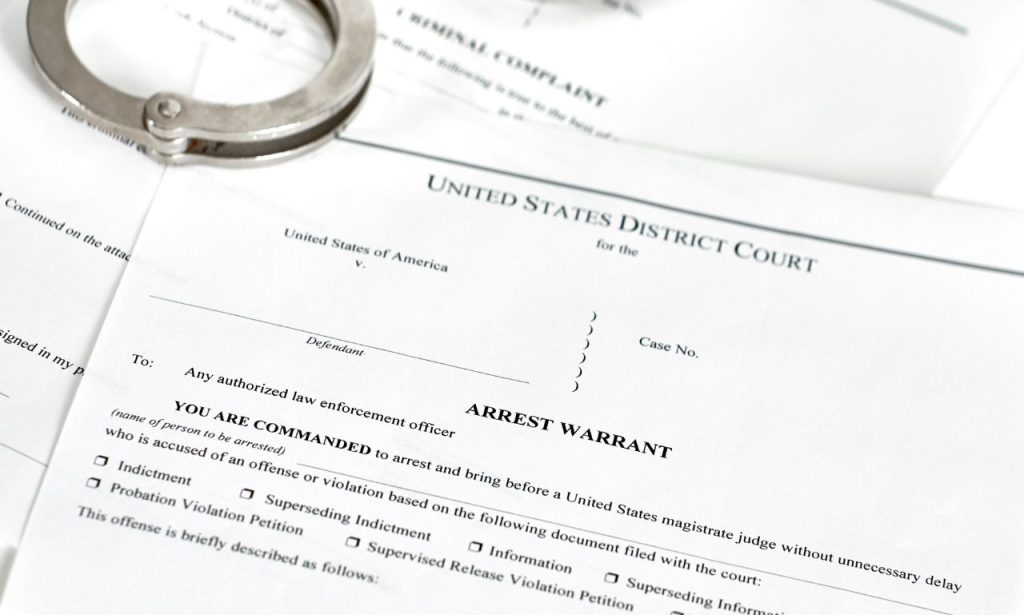Facing the dilemma of whether to turn someone in for outstanding warrants can be emotionally taxing and legally complex. Whether you’re a concerned friend, family member, or simply a citizen aware of someone’s legal troubles, understanding the correct procedure is crucial. This guide offers a thorough exploration of how to turn someone in for warrants, ensuring you approach the situation responsibly and legally.
Understand the Different Types of Warrants
Before you take any action, it’s essential to comprehend the various types of warrants that might be involved. Each warrant serves a distinct purpose and has specific legal implications.
Arrest Warrants

An arrest warrant is a legal document issued by a judge or magistrate that authorizes law enforcement to detain an individual suspected of committing a crime. To obtain an arrest warrant, law enforcement must present probable cause that the individual has engaged in criminal activity.
Key Points:
- Issued based on probable cause.
- Specifies the individual to be arrested and the nature of the alleged crime.
- Requires signature by a judge or magistrate.
Bench Warrants
Bench warrants are issued by a court when an individual fails to appear for a scheduled court appearance or violates other court orders. Unlike arrest warrants stemming from criminal charges, bench warrants often arise from procedural issues.
Key Points:
- Issued for failure to appear or comply with court orders.
- Typically handled by local law enforcement agencies.
- Can lead to arrest at any time until the warrant is resolved.
Alias Warrants
Alias warrants, also known as “good cause” warrants, are issued without the individual’s name being known. These are used when the law enforcement officer knows sufficient details about the suspect (e.g., physical description, last known address) but not their identity.
Key Points:
- Issued when the suspect’s identity is unknown.
- Relies on descriptive information to locate the individual.
- Often used in ongoing investigations.
Assess the Implications of Warrants
Understanding the implications of warrants is crucial before taking any action. This knowledge helps you navigate the process responsibly and anticipate potential outcomes.
Reasons for Warrant Issuance
Warrants are typically issued for several reasons, including:
- Unpaid Fines or Court Fees: Failing to pay fines or attend court hearings can result in a bench warrant.
- Serious Criminal Allegations: Severe charges like felonies warrant more immediate attention.
- Failure to Comply with Court Orders: Ignoring restraining orders or probation terms can lead to warrant issuance.
Potential Legal Consequences
Turning someone in for a warrant comes with both benefits and risks. It’s vital to consider these before proceeding.
Possible Outcomes:
- Apprehension: The individual may be taken into custody, which could lead to court appearances or legal proceedings.
- Legal Obligations: You may have a legal obligation to report certain offenses, especially if you are in a position of authority or trust.
- Personal Impact: Intervening in someone’s legal issues can strain personal relationships and have emotional repercussions.
Prepare for the Process of Turning Someone In
Preparation is key to handling the situation effectively and ensuring you comply with all legal requirements.
Gather Necessary Documentation
Before contacting authorities, collect all relevant information and documents that pertain to the warrant. This might include:
- Personal Information: Full name, date of birth, and last known address of the individual.
- Warrant Details: If available, any specific information about the warrant, such as the issuing court or case number.
- Supporting Evidence: Any evidence that substantiates the existence of the warrant or the reasons behind it.
Understand Your Legal Obligations
It’s important to be aware of your legal obligations when turning someone in for a warrant. Missteps can lead to unintended legal consequences for you.
Considerations:
- Confidentiality Laws: Ensure you’re not violating any privacy laws by disclosing information.
- Mandatory Reporting: Certain professions require you to report specific offenses if you become aware of them.
- Legal Protections: In some cases, you might have legal protections when reporting a crime in good faith.
Determine the Appropriate Law Enforcement Agency to Contact
Identifying the correct law enforcement agency is crucial for the efficient handling of the warrant.
Local Police Departments
Local police departments handle most bench and arrest warrants within their jurisdiction. They can detain the individual and process the warrant accordingly.
When to Contact:
- The warrant is issued by a local court.
- The individual resides within the local police’s jurisdiction.
Sheriffs’ Offices
Sheriffs’ offices typically manage warrants in county areas, especially in regions without a local police department. They handle both arrest and bench warrants.
When to Contact:
- The warrant is issued by a county court.
- The individual is believed to be within the county’s jurisdiction.
Explore Potential Legal Assistance
Navigating the process of turning someone in for a warrant can be complex. Seeking legal assistance ensures you understand your rights and obligations.
Options for Hiring an Attorney

Consulting with an attorney can provide you with tailored advice and guide you through the process.
Reasons to Hire:
- To understand the legal implications of your actions.
- To receive guidance on the best course of action.
- To ensure you comply with all legal requirements when reporting the warrant.
Resources for Legal Aid
If hiring an attorney is not feasible, several resources offer legal aid and support.
Available Resources:
- Legal Aid Societies: Provide free or low-cost legal services to those in need.
- Pro Bono Services: Some attorneys offer pro bono (free) services for certain cases.
- Online Legal Resources: Websites like LegalZoom or Nolo offer valuable legal information and resources.
Conclusion
Turning someone in for warrants is a significant decision that requires careful consideration and understanding of the legal landscape. By familiarizing yourself with the types of warrants, assessing the implications, preparing adequately, and seeking necessary legal assistance, you can navigate this challenging situation responsibly. Remember, the goal is to uphold the law while balancing personal relationships and ethical considerations.
ALSO READ: How to Get a Public Defender in Florida
FAQs
If you’re uncertain whether a warrant exists for someone, you can perform a background check through local law enforcement or online databases. Alternatively, contacting an attorney for guidance can provide clarity.
Yes, many law enforcement agencies allow anonymous tips. However, providing specific information improves the chances of effective action.
Once turned in, law enforcement will process the individual’s arrest, notify necessary parties, and schedule court appearances. The individual may face legal proceedings based on the nature of the warrant.
While turning someone in is a legal right, it can strain personal relationships and may lead to unintended legal consequences if not done correctly. Consulting with a legal professional can help mitigate these risks.
The execution of warrants depends on various factors, including the severity of the charge and the individual’s location. Some warrants are resolved quickly, while others may remain active until the person is located.




